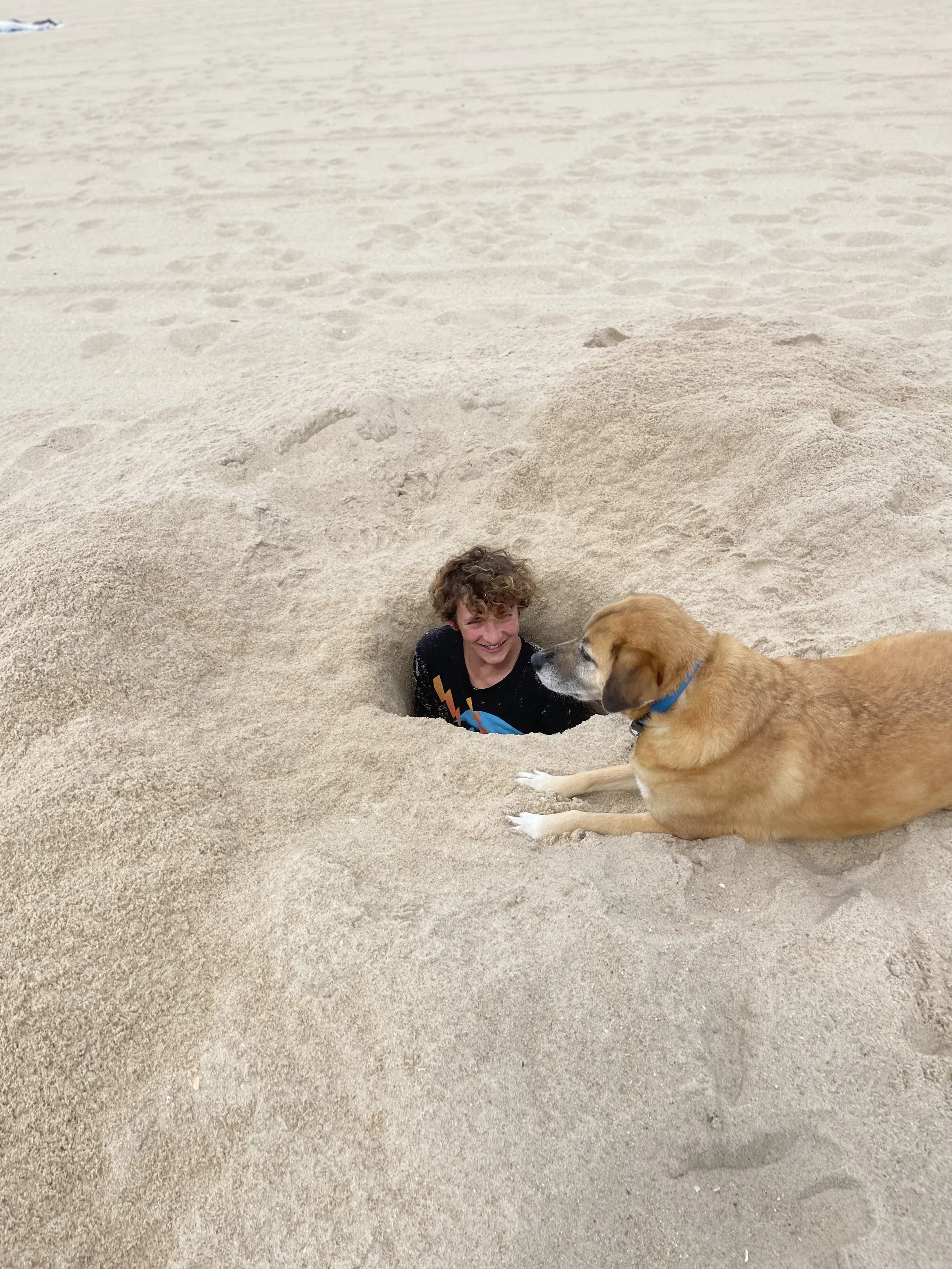Grit and Self-Compassion: The Continuum
Everything in life is on a continuum. Everything is relative right? And we are all different, so our optimum state is different from one another. But there is some baseline, something called “healthy.” And this healthy place usually sits in the middle between two polarities.
Think about people’s traits, they exist on a spectrum rather than in distinct categories. Like personality traits: extroversion versus introversion, agreeableness (people pleasing) versus disagreeableness, and openness to experience versus closedness to experience, perfectionism versus not giving a shit, porous versus rigid boundaries, risk seeking versus risk adverse, caretaking versus self-involved, grit versus self-compassion, etc…
In most cases living on the extremes is either painful for the person in question or those around them. Each person has a unique blueprint of their essential character, and they may naturally lean towards one side of the continuum more than the other. Recognizing our own tendencies and working on the other side can help us achieve a better balance between them. When we start moving toward our comfort zone in one extreme, it is usually necessary to put in extra effort to go the other way.
This will not come naturally. This is not easy work. This takes a lot of self knowledge and awareness to notice the subtleties…
Here is an example:
Beth tends toward self compassion, when things feel like a lot of work, challenge or discomfort, she often decides to take care of herself. But this “taking care of herself” is often used as a protection against things that may stretch her experience and create opportunities despite the discomfort.
On the other hand, Nicole is gritty. She pushes herself in work and in all kinds of situations to excel and go beyond her comfort zone. But this grittiness often results in her feeling burned out, overextended and with not enough quiet to process her feelings and needs.
Both grit and self-compassion are great qualities and useful in their own right. But it is important to see where you naturally lean, to see where you will at times need to push yourself, to balance out your natural tendency to be in your optimum state.
When self-compassion is taken to the extreme, it can lead to complacency, lack of motivation, and a tendency to avoid challenges and difficult emotions. People who are overly self-compassionate may become too self-indulgent or self-pitying, leading to a lack of accountability and responsibility.
If we tend to avoid difficult situations or back away when things get hard, we may need to work on cultivating more grit and perseverance. This can involve setting challenging goals for ourselves and pushing ourselves to stick with them even when it's uncomfortable or difficult. We can also seek out support and accountability from others to help us stay motivated and focused.
On the other hand, when grit is taken to the extreme, it can lead to burnout, exhaustion, and a narrow focus on goals at the expense of other important aspects of life, such as relationships, health, and well-being. People who are overly gritty may also become too self-critical and perfectionistic, leading to high levels of stress and anxiety.
If we tend to be self-critical or harsh with ourselves when we don't meet our own expectations, we may need to work on cultivating more self-compassion. This can involve recognizing our own limitations and accepting that it's okay to make mistakes or experience setbacks. We can also practice self-care and engage in activities that help us feel nurtured and supported.
In a world where challenges are abundant, it's crucial to strike a balance between pushing ourselves with grit and showing self-compassion. It's not about avoiding the difficult, but rather about understanding when to step back and when to power through.
Choosing grit means embracing the tough tasks, acknowledging their significance, and recognizing our own capabilities. It's about finding the strength within us to tackle obstacles head-on, even when they seem daunting.
However, we must also remember the importance of self-care and compassion. Sometimes, backing away from a situation isn't a sign of weakness but a sign of wisdom. Recognizing our limits and knowing when to prioritize our well-being is an act of self-love.
Where are you on the continuum? What qualities are you working on balancing? Are there areas in your life that you need to work toward the other polarity?
Are you interested in working on your personal development? Are you looking for a life coach or a life consultant? Are you feeling stagnant? Do you want to jumpstart change?
My transformational approach is a process where awareness, alignment, and action work together as catalysts to create momentum for change.
*Awareness is knowing what you genuinely want and need.
*Alignment is the symmetry between our values and our actions. It means our inner and outer worlds match.
*Action is when you are conscious that what you say, do and think are in harmony with your values.
Together we build an understanding of what you want to accomplish, and delve deeply into building awareness around any thoughts and assumptions that you may already have. To truly transform your life, I will empower you to rethink what’s possible for you.
__
Learn more about my approach to life consulting and relationship coaching here or get in touch for your free 30-minute consultation here! Don’t forget to follow along @LilyManne on social for more regular updates!


